Activity and movement were a part of Isabelle Lust’s life from the age of 2.
“My mom put us in ballet and that was [something] more fun on the side we would do just like get us moving,” Lust said. “I think I started summer league swim when I was about five, and I’ve been doing that all the way up until this past summer. I’ll probably do it this summer, too.”
Although Lust was initially forced into swim, she started to enjoy the physical and mental challenge of the sport, and even started working as a coach. In middle school, Lust did volleyball, basketball, track, and dance – it was as part of the dance team that Lust truly found community.
“It was just fun being with all these girls who had similar passions,” Lust said. “A lot of struggles that I would be going through a lot of the other girls would be too…whenever we would finish the dance we would go backstage and tell each other like ‘oh, I messed up’ and they’re like ‘don’t worry, I messed up, too.’ No one’s perfect, but at the end of the day we all had fun.”
According to a September 2024 report by the Women’s Sports Foundation, the skills, traits, and experiences that girls gain in sports help them become leaders in their adult lives. Lust, for instance, said that dance helped her develop confidence.
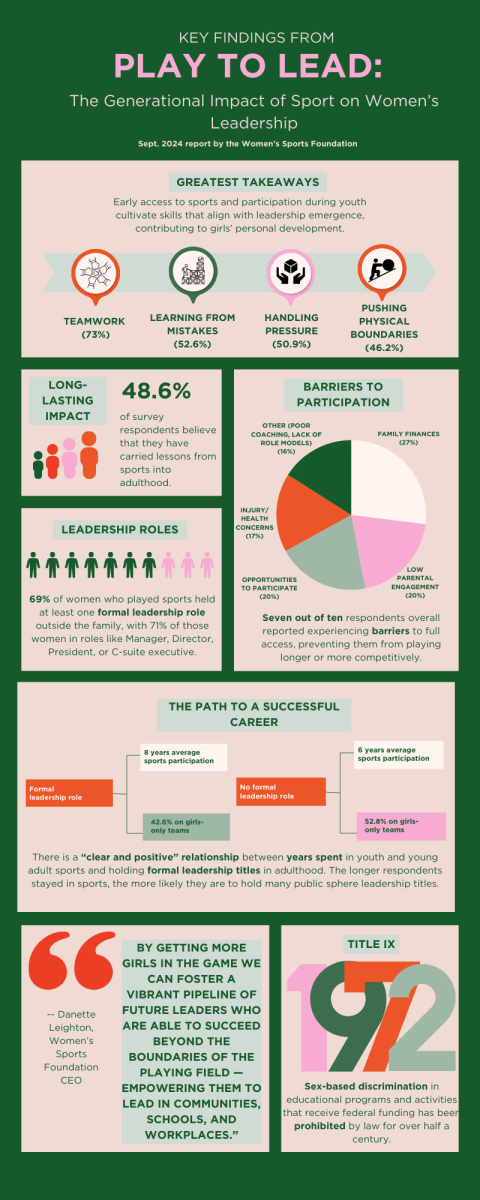
“Know that people aren’t going to know when you make a mistake unless you call it out to yourself, and a lot of times people aren’t looking for your mistakes,” Lust said. “You think that people are going to see your mistakes only not see what you do good. But in reality. they only see the good parts and then never really see when you make a mistake.
For every fall, there is a moment of standing back up; for every stumble, a choice to keep moving forward. Ultimately, these moments are the experiences that build leadership; Lust served as the dance lieutenant officer in seventh grade, then as the team captain and colonel in eighth grade. Now, she is the two-year captain of the cross country team (district champions in the 2024 season), where she strives to set an example for the younger runners.
“There’s days where I don’t want to go to cross-country practice in the morning, but it’s showing up for my teammates,” Lust said. “Once I get to practice and I get to see my teammates, it just brings a smile to my face seeing them.”
Lust also serves as the co-vice president of the National Honor Society, vice president for leadership of DECA, and is a Student Council senior executive. Looking back, she said she’s proud of how far she’s come – Lust hopes to leave behind a legacy of “learning to love what you do”, as an athlete and leader both.
“Playing sports really just makes me happy, and so that’s what I do,” Lust said. “I guess as a kid, it was just such an integral part of my lifestyle. It was like my identity. I don’t think I could ever stop playing sports.”
For the varsity volleyball team, Mondays mean one thing: Mackey Monday.
“Mackey puts on a 10-minute video each week, just having two words, just telling you to push yourself,” volleyball captain Emma Levy said. “I think those words have really inspired us. We have great discussions after.”
The video program highlights traits like hard work and fighting through adversity, which Levy said have really helped their team dynamics.
“The positivity in our program and how we’ve shaped it into what it is today, all the work we’ve put in to make it such an inclusive environment, is one important thing that I hope we leave behind when we leave,” Levy said. “Just work ethic, the mood of everything, just always pushing each other to be the best version of ourselves.”

Levy said that sports gave her an outlet to develop her voice – a confidence to speak up, whether in the National Honor Society, where Levy is an officer, or for the needs of the volleyball team.
“I was captain with a girl named Kiwi [and] we liked to talk to everyone, make a personal connection,” Levy said. “I feel that made our team stronger on the court and off the court – speaking up about things that need to be changed and calling people out when things need to be changed, just making sure everyone has a safe space.”
If what Levy describes as a “welcoming” athletics program is the entry point for female athletes, then the female coaches guiding them through every practice and every game are the key to truly thriving.
“There’s so many opportunities, so many sports, so many welcoming coaches that just care about the players and want them to succeed in life through academics and athletics,” Levy said. “We actually had a new coach this year, Coach [Amber] Brooks. She’s inspired me to work hard every day and just push myself to be better. She came in at the best time our senior year and just always pushed us to be our best, and I respect her so much for it.”
For Brooks, the drive to excel both as the varsity volleyball coach and an AAC chemistry teacher — and the ability to successfully motivate her players and students to do the same — stems from a mantra passed down by her grandfather: “Whatever you do, make sure you do it 100%”.
“He said, if you’re going to be a toilet seat maker, then you best be the best darn toilet seat maker that you want to be,” Brooks said. “If you want to be a mom, be the best mom that you can be. But whatever you do, be the best at whatever you love to do.”
At times, Brooks said it can be difficult to balance those different identities, in the same way that female student-athletes may have to juggle academics, sports, and family responsibilities. There’s a “mental toughness”, as Brooks calls it, needed to handle all of it, all at once.
“Maybe women are made a little differently and can handle more,” Brooks said. “But that’s something that I always take into account is [that] we have to have a lot more stress because we are athletes, not just the same stress that a lot of kids just go through daily.”
Is it a liminal space, that gray area that blends female and athlete, coach and mom, student and daughter? Perhaps, but increasingly less so, as generation after generation of women proudly claim both titles.
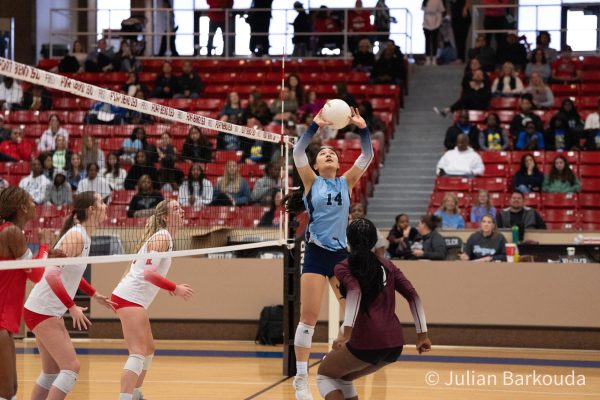
“I have probably played more sports than I can count, but I know that the lessons that I learned when I was playing have really helped me learn,” Brooks said. “Even in my job now as the teacher or as a coach, they really impacted my life, because now I’m able to lead young women, young teenagers at Clements or at any high school that I go to.”
In the 2024 season, the varsity volleyball team was a bi-district finalist and made its first playoff appearance since 2015. 100% of the team also earned Academic All-District title. In Brooks’ chemistry classroom, pictures commemorating the season decorate bulletin boards and filing cabinets — Mackey isn’t there, but his two-word videos have already made their mark.
“In the long run, everybody wants to win, but at the end of the day, it’s not about winning,” Brooks said. “It’s about the lessons that you’re learning for life because sports will end one day. What you learn in sports has to carry on.”
The competition was stiff for swim coach Lauren Neal.
“To get this job, I competed with a lot of male coaches that were a lot older than me and good old [former principal David] Yaffie, I guess he saw a little something in me,” Neal said. “And so I was pretty proud about that.”
Neal, an Austin High School alumnus, had always wanted to join the Clements swim team. Now, not just as part of the team but as its coach, Neal said she likes showing her kids how to set and achieve their goals, from making time drops to becoming district champions.
“To be able to coach a community that has such a vast amount of swimmers and such a high level of swimmers, I feel really blessed to be able to work at Clements High School because it just fuels my passion and my fire for the sport,” Neal said. “It just makes me happy overall.”
Every day, Neal sets her alarm to 4:45. By 5:45, well before the sun is up, the team is in the water and starting their drills.
“Swimming is one of those sports where if you’re not in the water at least four or five days a week, you’re not going to get better,” Neal said. “I think swimming naturally is a sport that allows you to set goals. It makes you focus on time management and you have to be disciplined to be a swimmer. You can’t be in and out of the water and expect results.”
Neal calls herself a “pretty aggressive lady” – she said it isn’t in her nature to baby anyone. As a female coach, though, passion can be misinterpreted as an emotional outburst instead of justified anger.
“Men are allowed to lose their cool, raise their voice, and, yeah, it’s looked down upon, but when women lose our cool, get emotional, it’s seen like, ‘oh my god, calm down,’” Neal said. “I feel like we have a lot more restrictions put on us because we’re female. I’ve been on deck where men are saying the most outrageous things to their kids and I would let one cuss word fly and the parents would just go insane on me.”
Neal isn’t the “sympathetic and easygoing” female coach that people might expect, but with 10 years of coaching under her belt, she said the stereotypes have gradually fallen away.
“I think as a society, we’re moving in a positive direction,” Neal said. “We’re starting to see more female coaches in male spaces pop up. I think we’re just as knowledgeable and we can contribute just as much as men can in those spaces.”
Senior Austin Pan, one of the boys’ varsity swim captains, credits his love of swimming to a female coach that he had for three consecutive years. Even now, Pan said many of the high school coaches he knows are female.
“They’re really great coaches,” Pan said. “I don’t see any reason why they should be discriminated.”
Despite competing separately, girls and boys practice together – Pan said he is often motivated by how hard the girls work. The biggest gap, he said, is in terms of the recognition they receive.
“I think Clements does a fairly good job of trying to highlight both girls and boys in sports, but I think that they don’t get as much recognition as they deserve,” Pan said. “They’re working just as hard as we are…We’re all athletes, we’re all doing the same thing. It’s only deserving that they receive equal treatment.”
Pan said he hopes his two younger sisters, both swimmers, can have the same chances that he’s had, regardless of their gender. The chance to enjoy the “gift”, in Pan’s words, of swimming – the camaraderie, teamwork, and exhilaration. The chance to grow, too, into someone who is equipped to handle the seasons of life.
“You deal with adversity [and] you’re going to have things that don’t go your way all the time,” Neal said. “[Sports] allows you to figure out a way to accept whatever happened and then move on from it or do whatever you need to do to not let that happen again…A part of life is to embrace the suck and deal with it because life is hard. That’s what sports teaches you.”
It’s safe to say women’s sports are having something of a renaissance. Basketball phenom Caitlin Clark was named Time Magazine’s 2024 Athlete of the Year. Nike ran a Super Bowl commercial — its first in 27 years — highlighting female athletes. The 2024 Women’s NCAA tournament averaged nearly 19 million viewers (with a peak of 24 million viewers) for the final game between Iowa and South Carolina — up 89% from the previous year and beating viewership for the Men’s final for the first time ever.
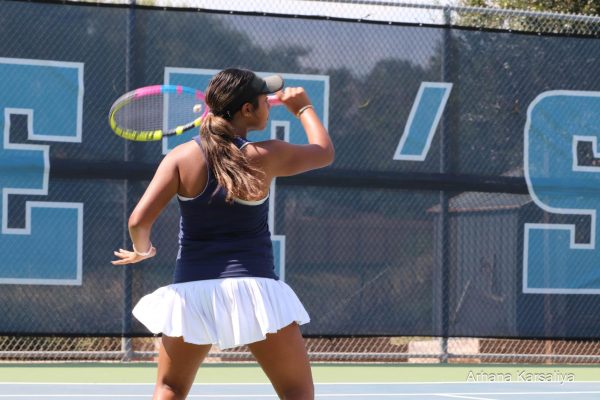
“I think we’re in a time right now that women’s sports is absolutely exploding, and we have to encourage that,” tennis coach Nicole Kitagawa said. “You have seen the WNBA grow, you’ve seen the Olympics, you’ve seen just a lot of different competitive arenas where women are being highlighted more…it shouldn’t be the outlier, it should be the norm. We need to continue to publicize, and encourage, and attend, and I think we all have our part to play with that. This is the time to keep it moving forward and not back.”
But Kitagawa, who coaches tennis in addition to teaching girls PE, said that the gender dynamics in high school “mirror society” – one that is moving forward but not yet completely equal. Often, she sees boys running out to claim the courts during tennis practice while girls feel like they don’t have a right to play, too. Or, guys shooting hoops “like they’re professional players” while girls keep to the sides of the basketball court.
“I think that’s our responsibility as coaches to go, when it’s time, boys, you get half the lanes, girls, you get half the lanes, boys, you get half the courts, girls, you get half the courts,” Kitagawa said. “One thing that [tennis] Coach [Brett] Bernstein and I are really good about is that we don’t care if a boy is playing a girl in tennis. If they’re the same ability level, then it’s fine…so I think the more that we encourage that and the more that society moves closer to treating everyone as equals, then it’s going to be less of a disparity.”
In sports, Kitagawa said, people of all genders can become leaders, whether they are naturally loud and commanding or lean toward introverted and quietly hardworking – like Kitagawa, who as the captain of her college soccer team, would show up early to work and encourage people behind the scenes. It’s a “safe space”.
“You get to see and experience more of an individual through sports than just having them sit in a class,” Kitagawa said. “You get to see them succeed. You get to see them struggle. You get to help encourage them and celebrate their successes. It’s just this other dimension of getting to know somebody and being a part of that.”
For athletic coordinator Lauryn Berger, sports “defined” her as a person – college softball took Berger away from her small town and helped broaden her horizon. Later, by pursuing a career as a coach, Berger was able to keep sports in her life.
“I don’t know what I would have done or been without [sports],” Berger said. “It’s truly taught me how to be confident and face challenges and never never give up even if you fail. With softball, failure happens so much and just learning that that’s not what defines you, it’s how you respond to that failure, learning from your mistakes and moving forward and continuing to grow. That’s truly helped me be a coach and now as a coordinator just kind of continue to share that passion and that journey with all the athletes that I work with.”
Berger now finds herself providing the support that she remembers receiving when she was an athlete. It was only a little more than half a century ago that sex-based discrimination in federally-funded educational programs – sports, in particular – was prohibited with the passage of Title IX, and the first girls made their way onto the playing field. Decades later, that network of support is still vital.
“I think what kind of holds female athletes back [is] that sense of ‘I don’t want to fail because I don’t want to embarrass anybody’,” Berger said. “So having that community and that support really helps to try to negate that. No matter what, this group of ladies [is] going to always have my back.”
According to the Play to Lead survey, more than 80% of respondents see the need for increased opportunity, funding, pay, enforcement of Title IX, media coverage, and hiring of women coaches as important for the future. At Clements, Berger said that division between male and female athletes isn’t prominent – in part due to the efforts of previous generations lobbying for change.
“There have been thousands of obstacles and things that have already been kind of pushed through for us and have been tackled to give us the opportunity to where we are kind of on the same page,” Berger said. “We do feel very much equals in our realm, in our athletics now than they probably did 20 or even 10 years ago.”
Even if the girls in Kitagawa’s PE class still aren’t as quick to claim a spot on the basketball court, there’s a hopeful optimism in the one or two that shoulder their way in. And it’s not just girls who are looking up to Caitlyn Clark, Serena Williams, Simone Biles, or Allyson Felix for inspiration.
“Women’s sports is an all-genders event,” freshman volleyball coach Jessica Kelm said. “It does not have to be just girls supporting girls…boys and girls can discuss [sports] together. I think that’s a really cool aspect that is different from any other kind of field.”
Beyond sports, Kelm encourages girls to find role models in any field they’re interested in, specifically female trailblazers.
“Women don’t get a lot of credit,” Kelm said. “We’re seen as kind of like, ‘oh, we’re expected to do things.’ And it’s hard to get the credit that women deserve because we’re freaking amazing.”
Principal Tara Baker’s world was “destroyed” the moment she found out the news about her grandmother.
Before Baker was a principal, she was a point guard and leader on her high school basketball team getting ready to play in the state tournament. Thursday night, after the first game, Baker’s grandmother – who had just recovered from a stroke-induced coma – fell and hit her head. She passed away in the hospital.
“In my mind, I’m battling between ‘I can’t play two more games, I can’t lead this team,’” Baker said. “My mom’s struggling, all of these these are happening, and ultimately, my coach was like ‘Listen, if you need to take her home, you can take her home’. I made the decision to stay because I said grandma would want me to play. There’s no way she would not want me to play.”
Baker played Friday and won. She played Saturday and won, too. The whole time, Baker remembers, was a “rollercoaster of emotions”.
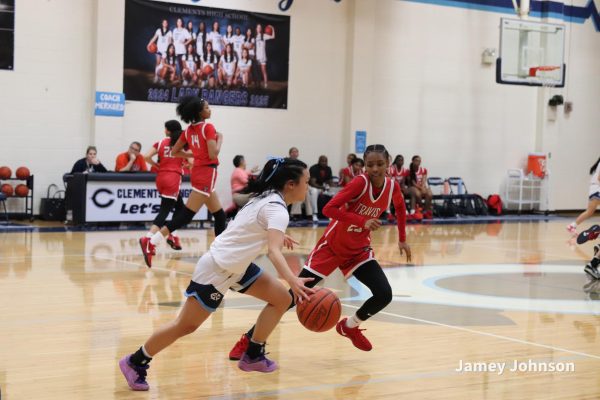
“We [won] and then reality set in because my grandma’s not there anymore,” Baker said. “The team really rallied around me and that moment in my life taught me that no matter what, you’re gonna get through it.”
In that pivotal moment, Baker said she “grew up really fast” – ultimately, it gave her confidence in her ability to lead while going through a traumatic experience. After high school, Baker played college basketball for four years. Although Baker’s college basketball team was less successful than her high school team, she said the experience still paid dividends years later.
“Discipline is the number one lesson that [sports] taught me,” Baker said. “Discipline can come in all forms but the main thing is you’re not going to succeed overnight and you have to essentially be consistent with small goals in order to accomplish your ultimate goal. That can translate into any field. Hard work does pay off when it comes to goals in sports and that easily translates to any career that I was going to pursue.”
Baker describes her transition from athlete to educator to leader as “the road less traveled”. It was through late nights and early mornings, and with the same dedication and consistency in the classroom as on the court, that Baker worked her way from teacher to associate principal to principal.
“No one gets to a leadership position by just applying,” Baker said. “Every administrator that you meet was once a teacher. As a teacher, my first year, I didn’t think that I was ever going to be a principal but I worked hard, I made sure that I was disciplined, [and] I made sure that I kept my word. Don’t think that it’s always going to be given to you.”
Authenticity, Baker said, is core to her leadership philosophy. In every meeting and every interaction, Baker said she wants people to know that what they see is what they get. As for the leader they do see? She is not just a principal shaped in the here and now. She is a former athlete, emblematic of the hopes and dreams of the coaches, teammates, and friends before her.
“If I didn’t have sports, I would not be here,” Baker said. “I truly believe I would not be here at Clements High School right now as the principal, just because of the discipline, the determination, the hard work, [and] the true core values that it instilled in me from a very young age that no textbook can teach you. Whatever you pour your heart and soul in, if it requires you to have discipline and hard work, that is going to shape you into a more well-rounded human being than some textbooks will. I would not be the leader that I am today without it.”



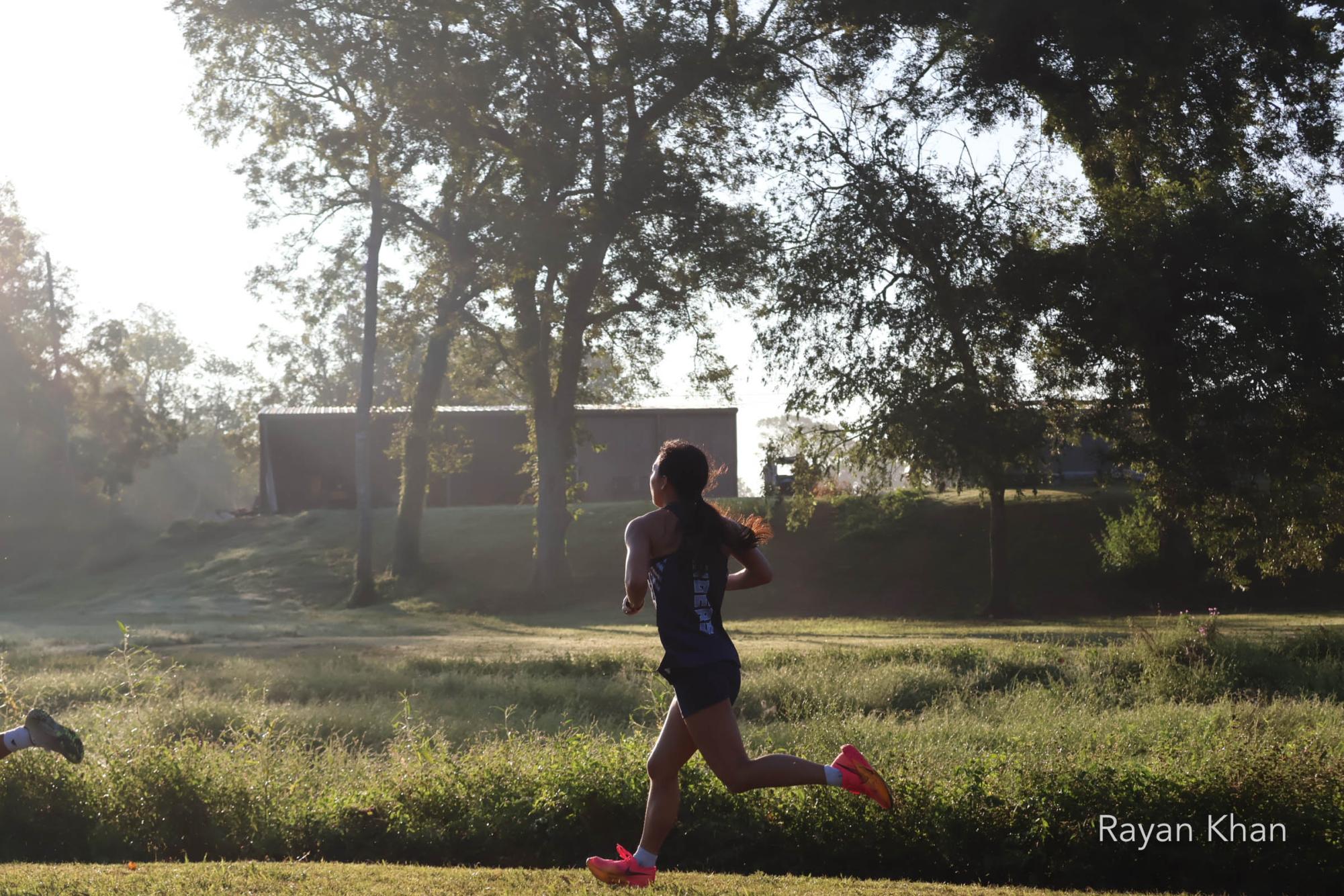
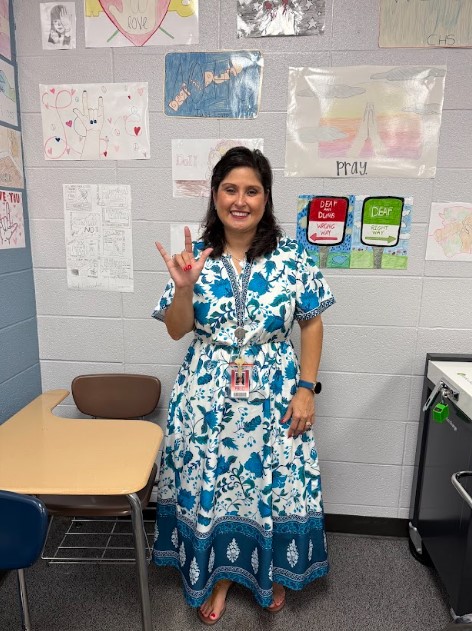
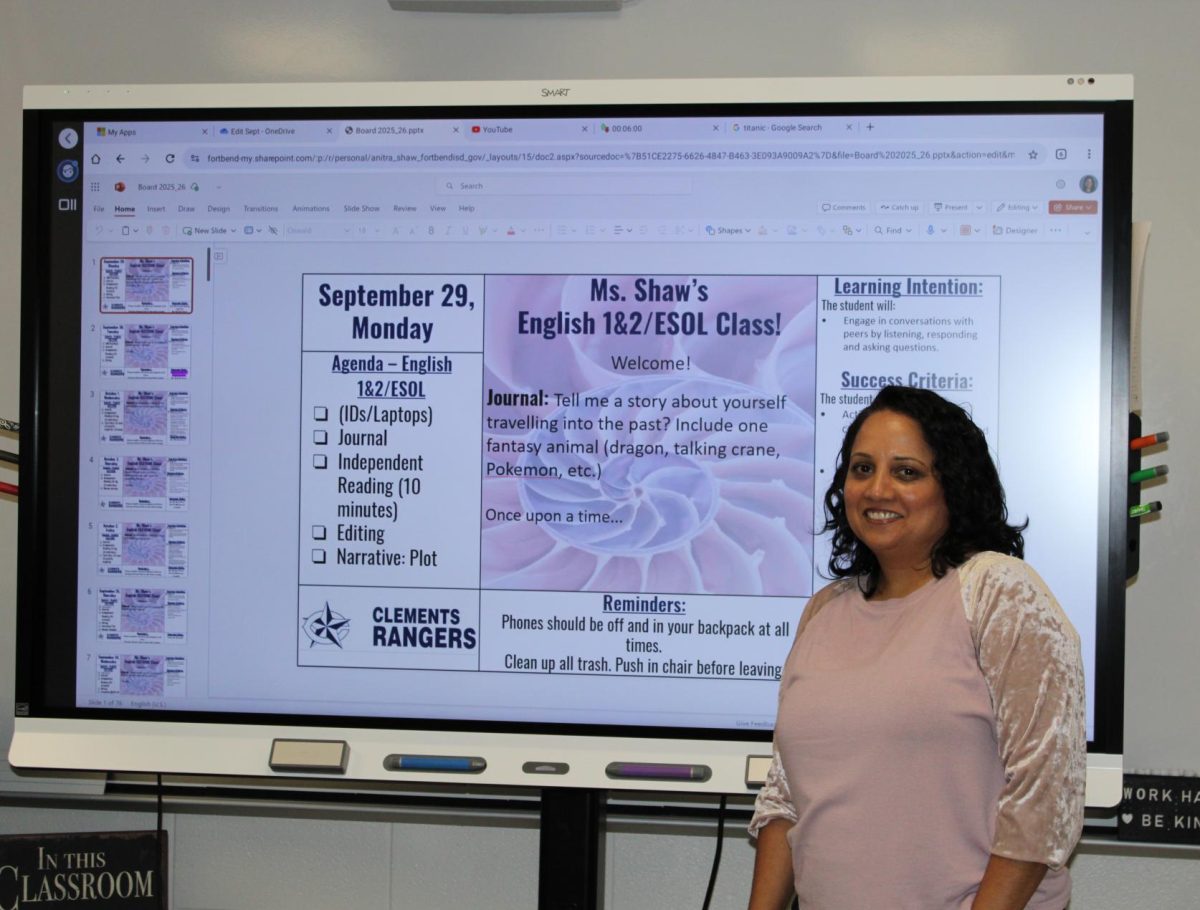

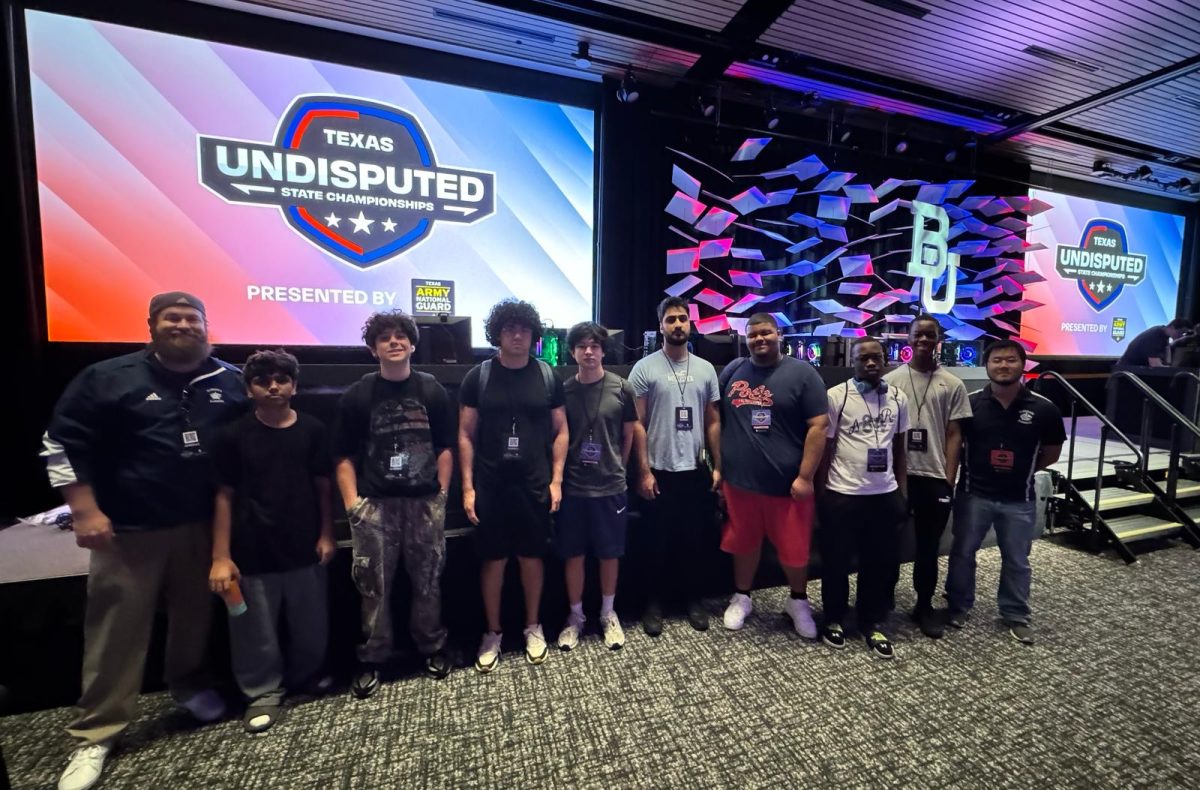


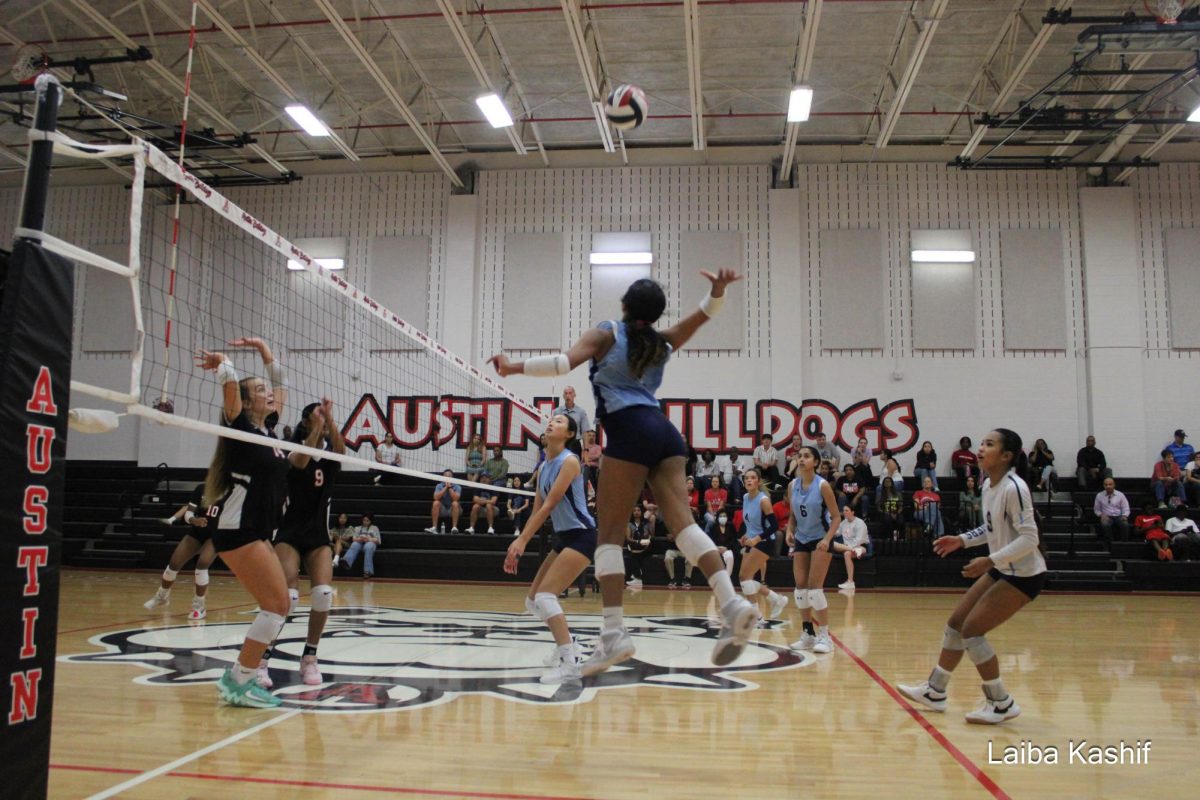
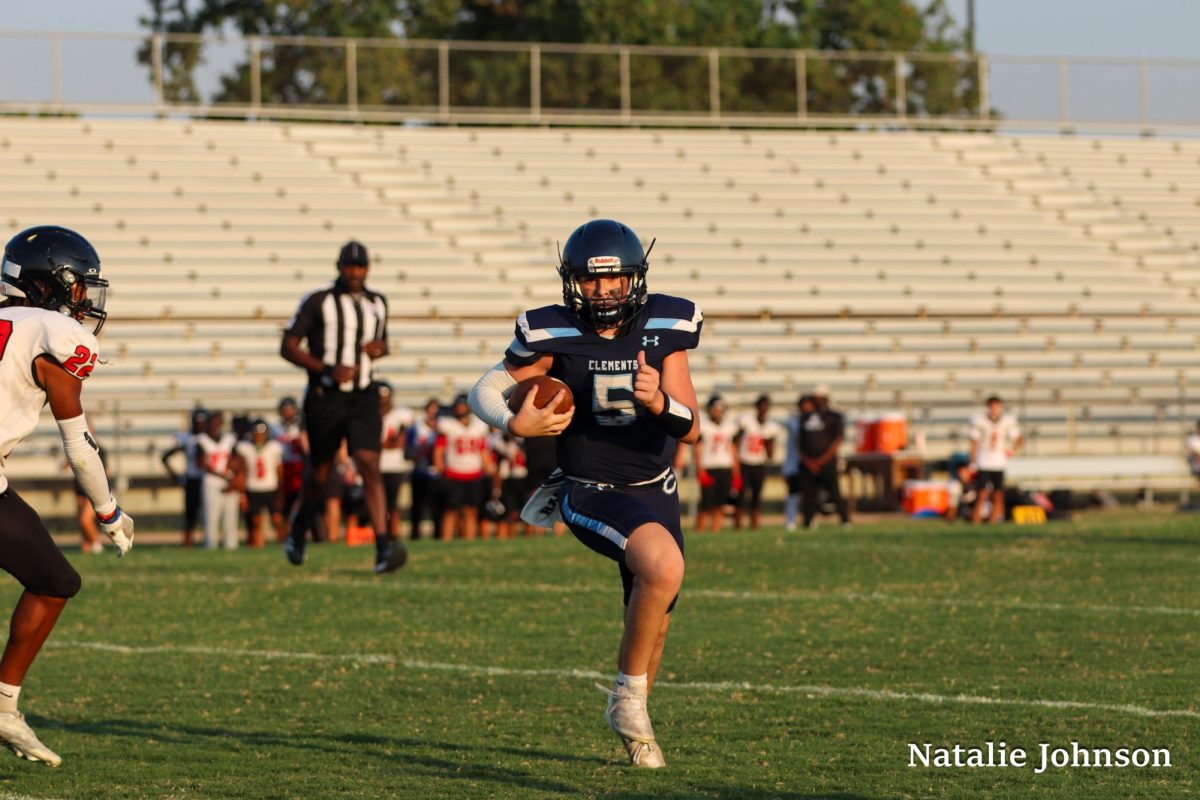
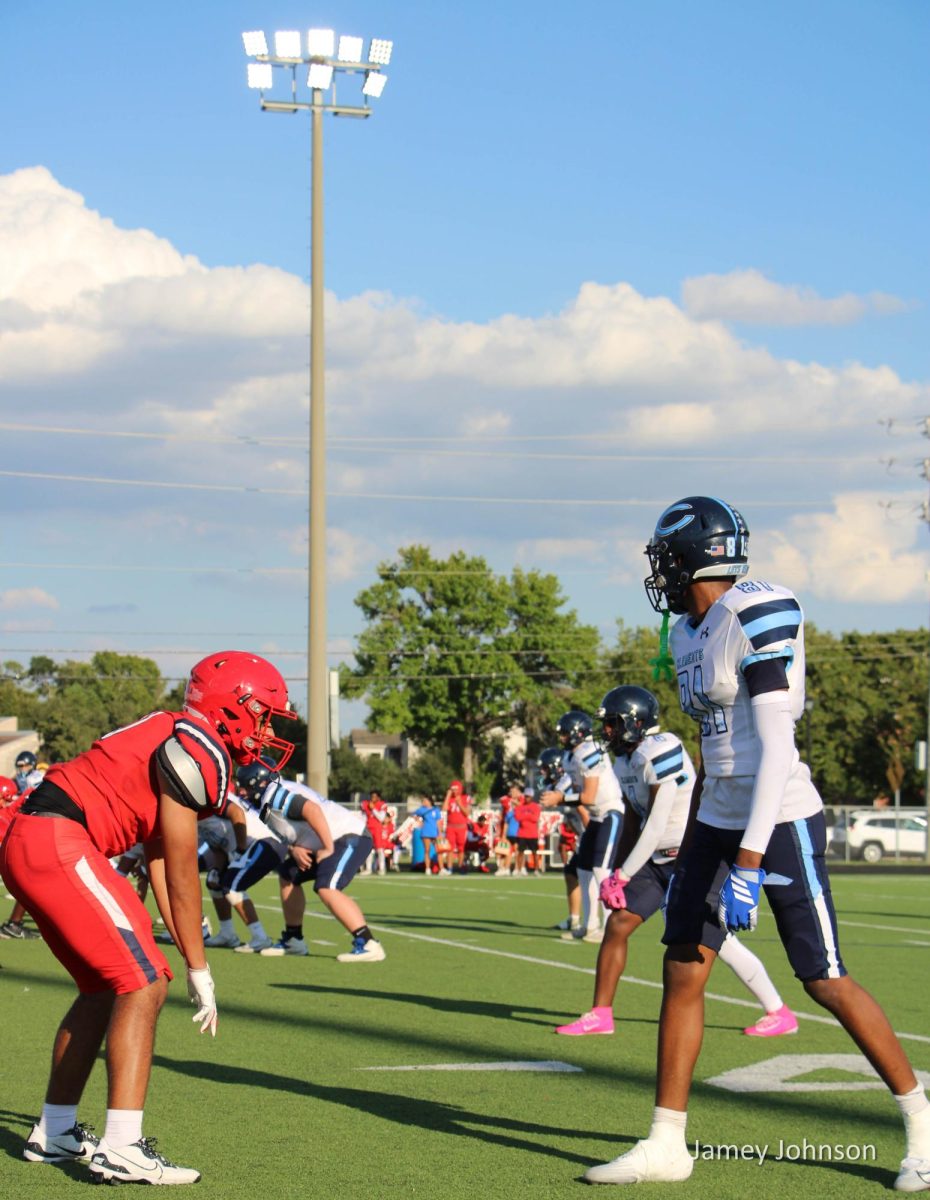
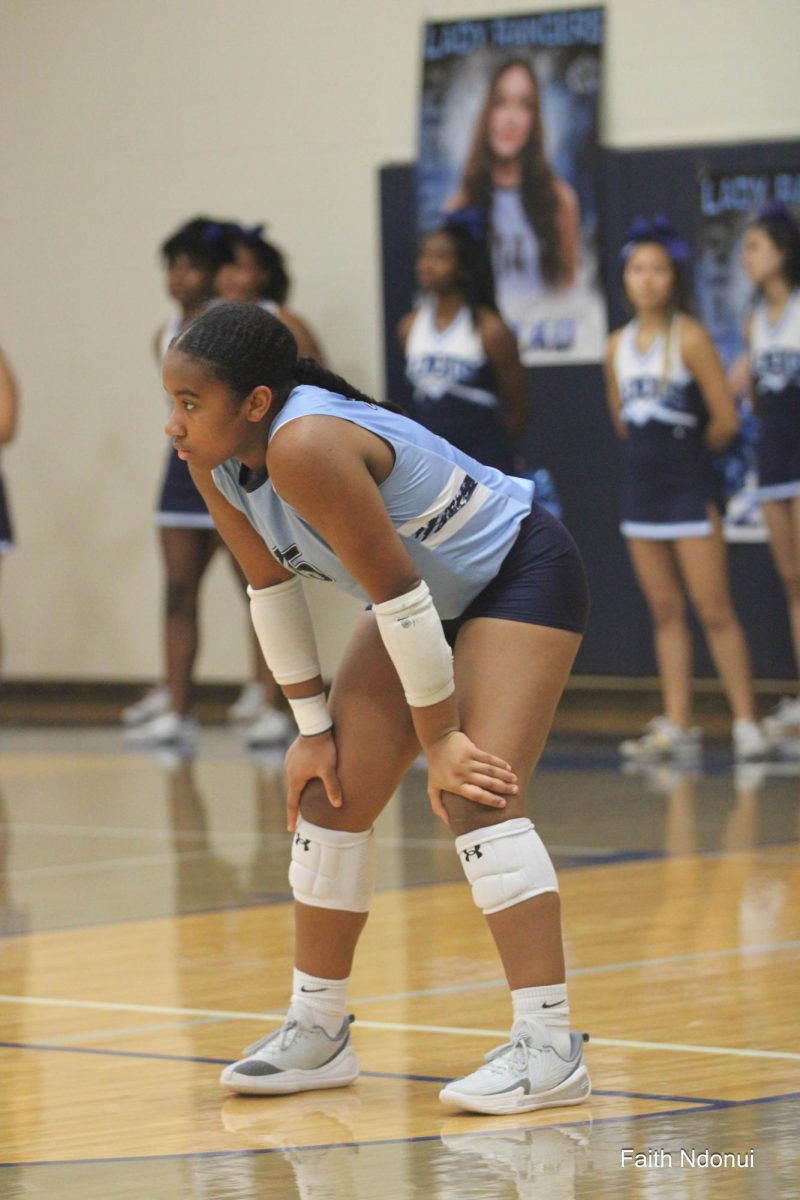
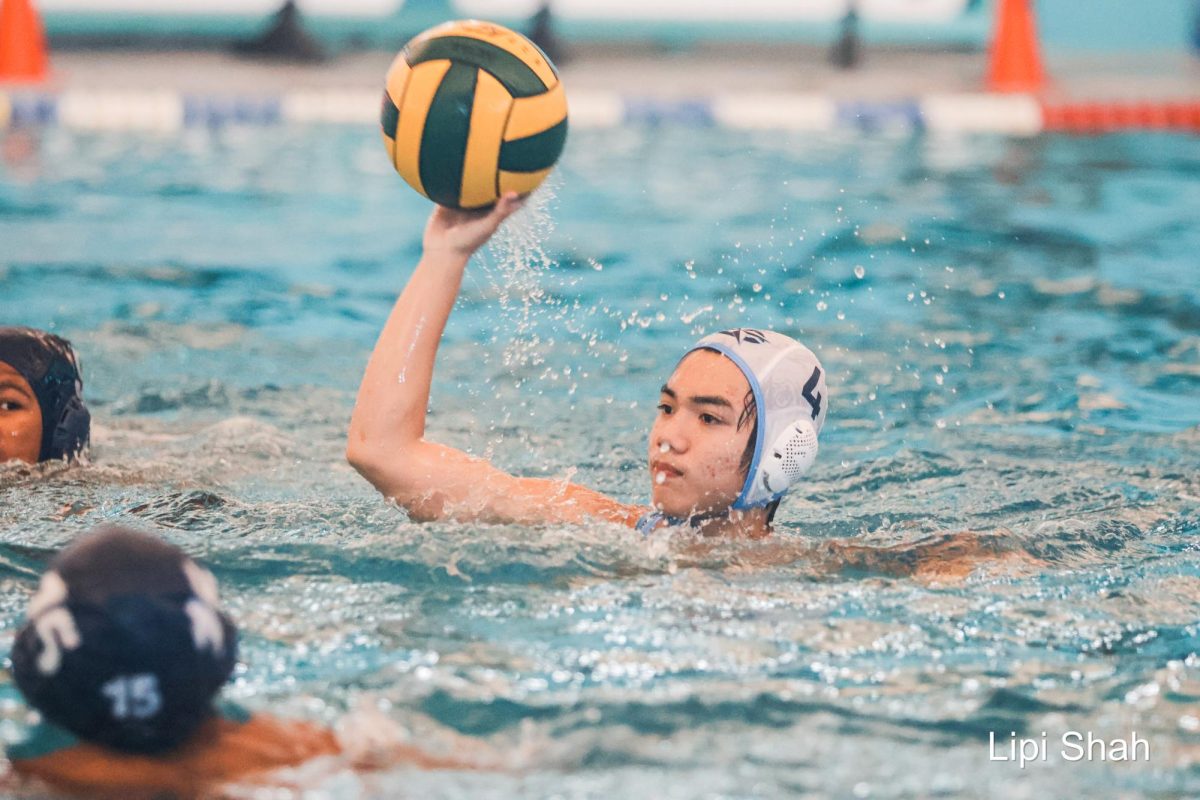
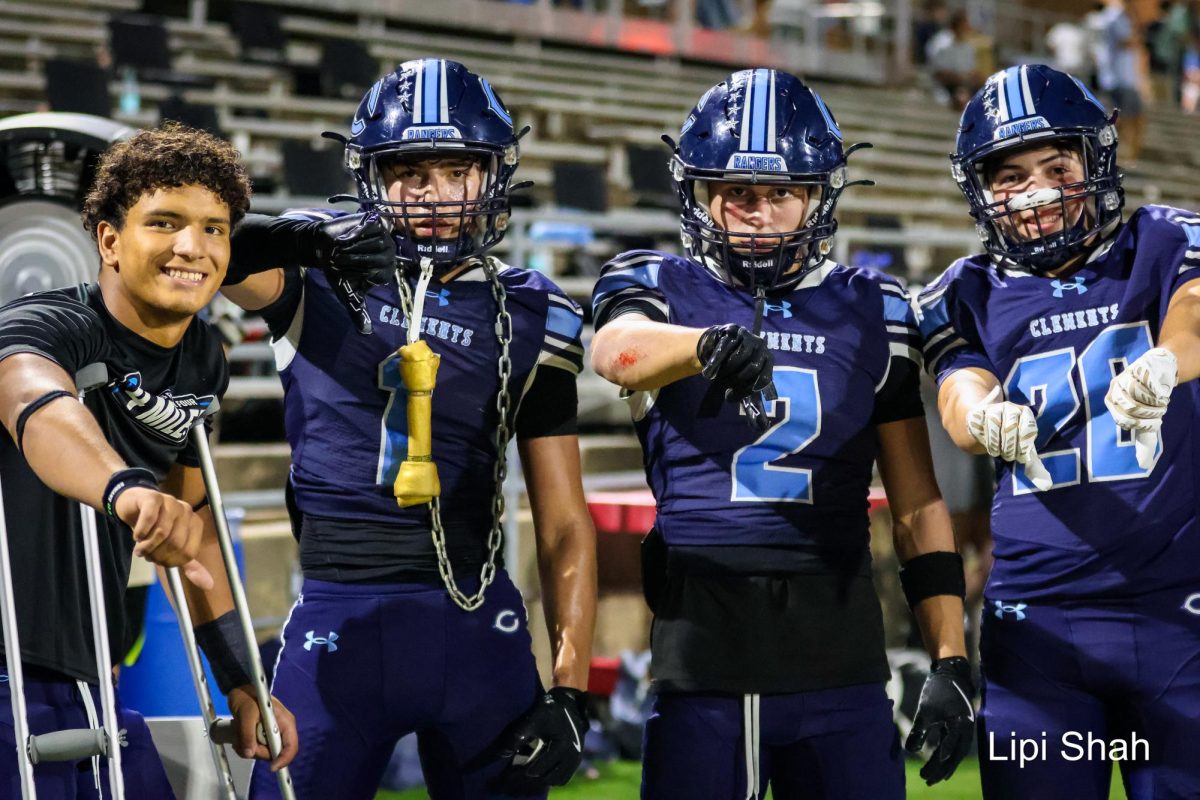
Aracely Tzul • Feb 25, 2025 at 9:02 am
This feature is very well written, and it makes me want to push myself to try out things. I find this very interesting because of the sports and how you talk about it. I really do like this feature.
Alexa Fargas • Feb 25, 2025 at 7:59 am
I really enjoyed the topic of this article. I think it’s important to highlight women’s achievements, and this passage did a really great job talking about women in sports. I loved the way the writer wrote all of the interviews; they were super easy to understand and encouraging.
Maya Ahmed • Feb 25, 2025 at 7:54 am
I love the way this article was written. The way the writer implemented the direct quotes from who they interviewed really made the story flow. How the article talks about the interviewee from childhood all the way to now really makes the story interesting.
Shivani Sunder • Feb 24, 2025 at 2:34 pm
This feature is incredibly well written, targeting women in all sports fields. I love the pictures and graphics that represent the different aspects of this story. The amount of quotes used along with statistics makes the cherry on top of this as well.
Humeyra • Feb 24, 2025 at 2:22 pm
I think that this article really inspires me to push myself. Reading this I’m influenced to go and try out the things I find interesting, and that helps me boost my confidence. Altogether I think this article really pushed my self to the fullest thank you!
Krishna Nair • Feb 24, 2025 at 9:04 am
This feature is very well written with great details that explained about the great experience’s in sports. As a reader, the direct quotes and explanations included in this feature made this story both informational and inspirational. Overall I really enjoyed reading this.